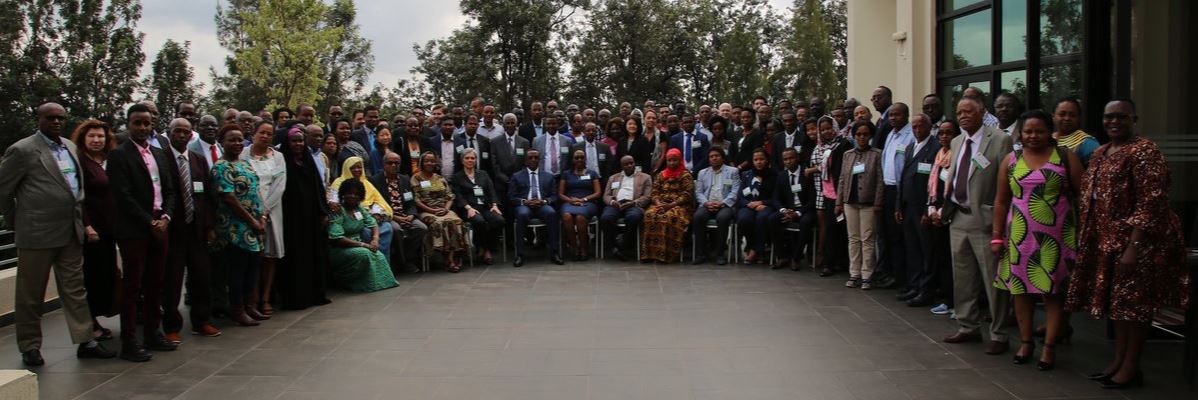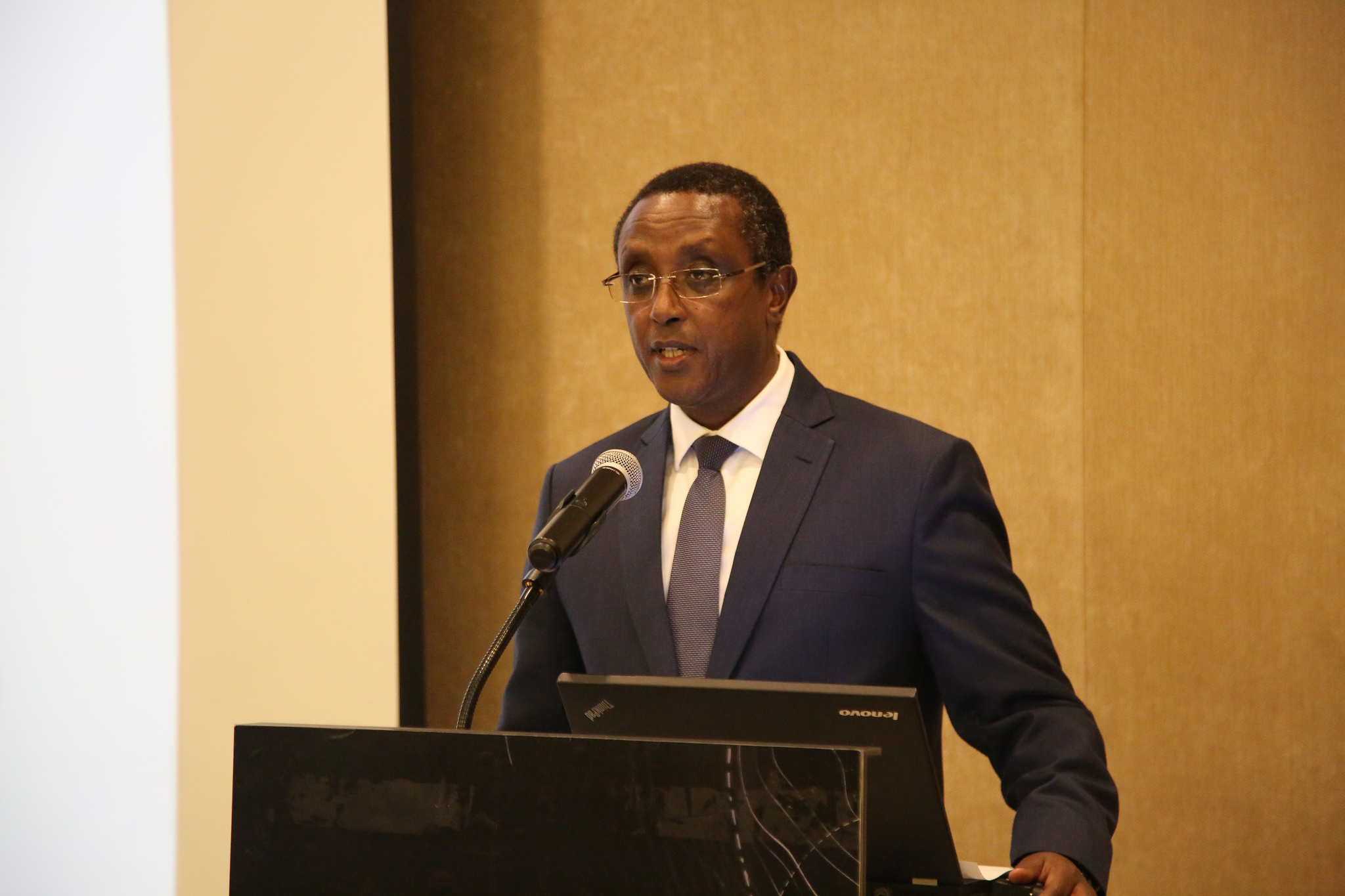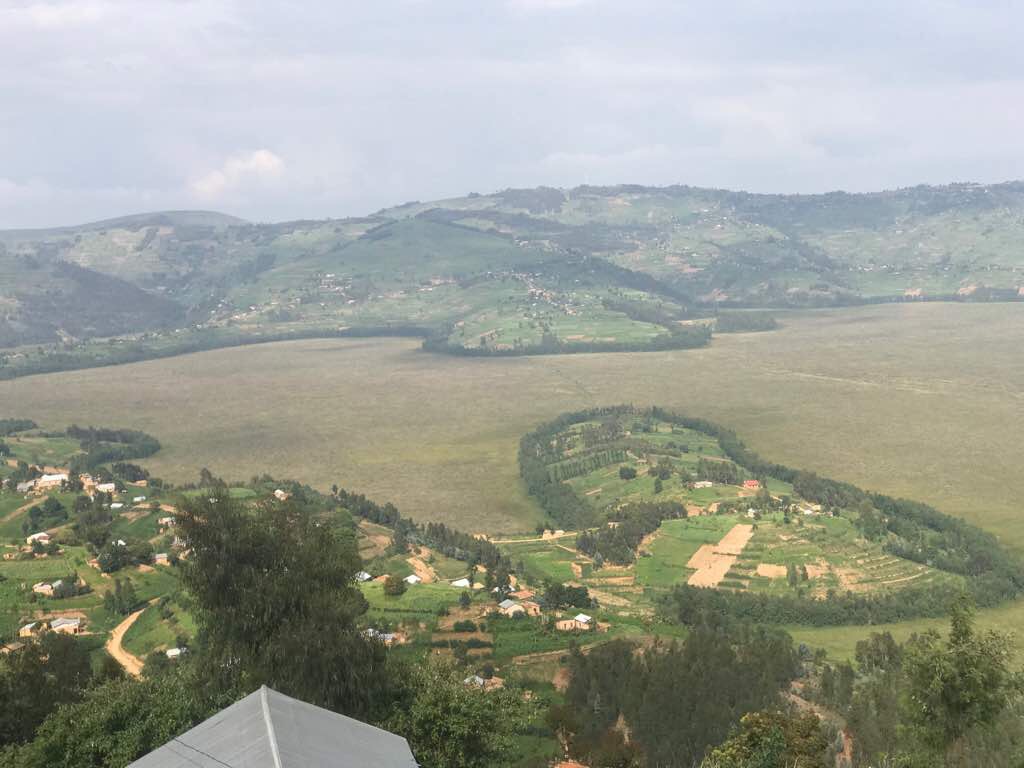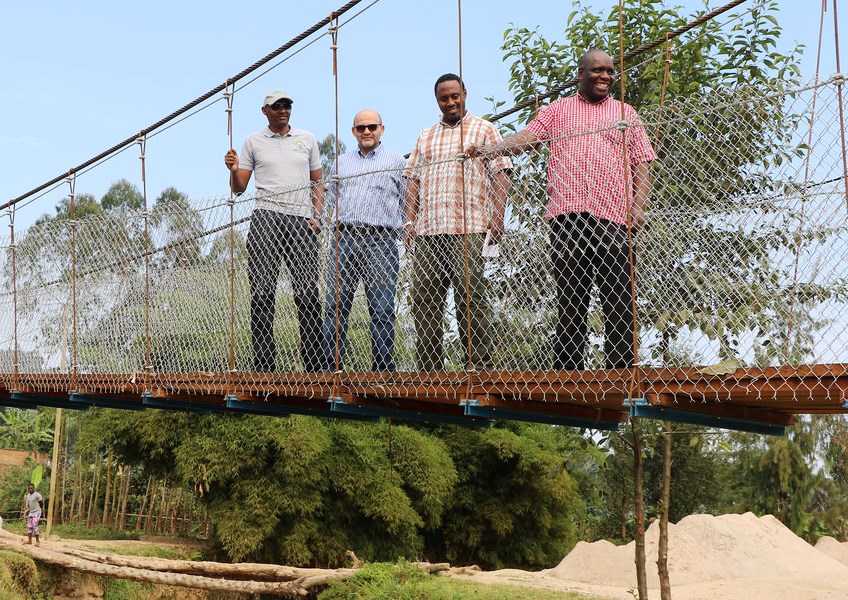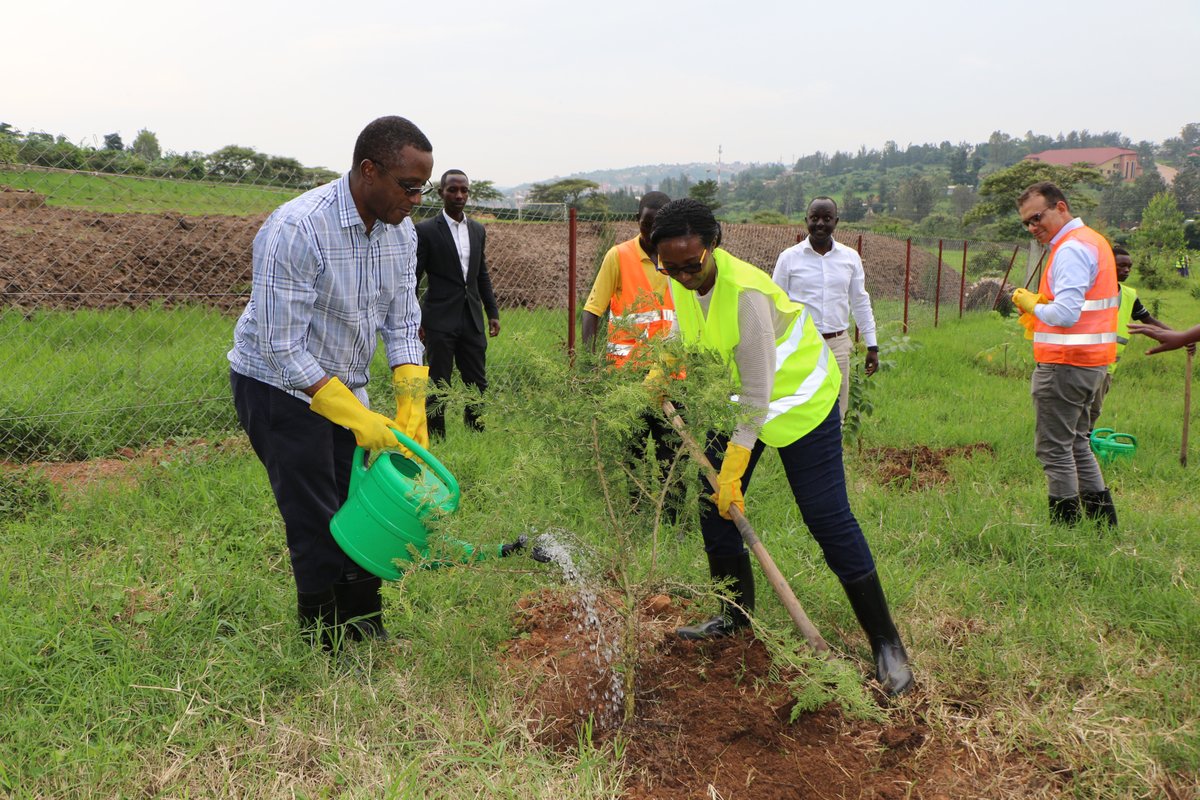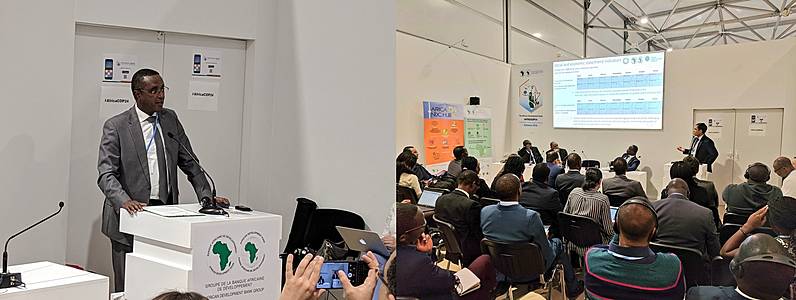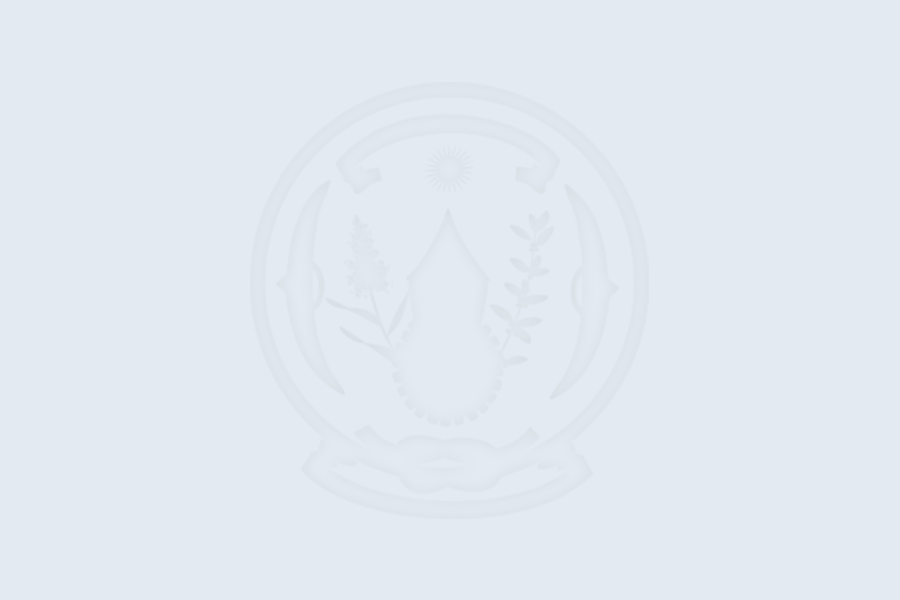
Speech of Permanent Secretary of Ministry of Environment on the Celebration of the International Day for Biological Diversity 31/05/2021
I am delighted to welcome you to the celebration of the International Day for Biological Diversity. This Day is normally celebrated on 22nd May with the aim of raising understanding and awareness on biodiversity and its critical importance for human life and development.
We have decided to celebrate it today, in the week dedicated to Environment in our country, because we find the theme for the Biodiversity Day which is “We are Part of the Solution for Nature” in alignment with the World Environment Day’s theme: “Ecosystem Restoration” which indeed brings in focus on reshaping relationship with nature.
This year’s theme emphasizes last year slogan, “Our Solutions are in Nature”, this means we have to find the solutions to current nature degradation and biodiversity loss because the future for us and our descendants depends on nature and ecosystems goods and services they provide us.
Biodiversity, represented by all life forms on earth, being those that we can see with our eyes or those that we cannot see with naked eyes, plays a critical role in respective ecosystems. Living organisms are the bedrock from which well-functioning processes in nature, supply us with the oxygen, water, all kind of foods and medicines that are indispensable for our survival. Biodiversity contributes to clean our environment, to make our planet beautiful with wonderful landscapes. All this enhance our cultural, spiritual and social life.
Biodiversity is also important for the economy. It is estimated that the global ecosystem services provide yearly benefits of more than one hundred trillion US dollars.
Rwanda has enjoyed strong economic growth in the last two decades, and as in many developing countries, this growth relies on natural resource exploitation. Indeed environmental resources and systems are the basis for socio-economic prosperity and quality of life, they provide goods and services that are essential for food and energy production, industrial and manufacturing development, pollution and disease control and climate regulation to mention but a few.
However, traditional GDP growth doesn’t account for resource depletion and environmental degradation which, in long term, risk to decrease the potential for economic growth and development.
Contribution of environment to the economy at a glance:
- Tourism, which is manly nature-based in Rwanda, is currently the fastest growing sector of the economy and has overtaken coffee as the leading foreign exchange earner for Rwanda. Since 2010, tourism has contributed more than $200 million to the country’s economy up to $404 million in 2019. The number of visitors to national parks increased from twenty four thousands in 2005 to to more than one hundred thousands in 2019.
- Much needed electricity to fuel the economy and households is drawn from renewable energy (Hydropower and solar) which makes up 70 % of total energy production.
Biodiversity is also critical for climate mitigation and climate resilience by storing carbon and reducing impacts of climate change. Adversely climate change can induce negative impacts on biodiversity and ecosystem services putting life at risk.
Despite all the benefits that we derive from biodiversity and ecosystem services, globally, the trend is that our activities have been consistently destroying or degrading the environment, resulting in huge biodiversity and ecosystem services loss. Triggered by various interests and policies, farmers, miners, foresters, businesses, fishers, institutions are exerting tremendous pressure on nature and biodiversity through overexploitation, pollution, mismanagement to mention but a few.
We are part of biodiversity and we are biting the hand that feeds us
Destroying the nature has a boomerang effect. Indeed we are impacted by the consequences of this destruction in different ways: food insecurity, water scarcity, climate related disasters inducing huge economic losses and new diseases like the COVID-19 that is devastating the humanity currently.
We are part of the solution
Let us be part of the solution otherwise we are paving the way to our own extinction. Individually and collectively, nationally and globally we can change the current pathways of destroying biodiversity and release the pressure.
Being part of the solution is by:
- creating knowledge to understand better the complexity of nature and how to conserve it,
- changing our consumption and production patterns,
- reducing or stopping economic and financial incentives that are detrimental to biodiversity, involving local communities in conservation and restoration of ecosystems on which they depend.
In our country, considerable progress has been made to curb biodiversity loss through developing policies and strategies geared to protect and conserve biodiversity, to reduce pressure on our forests, to restore degraded ecosystems. We are part of the global frameworks to conserve biodiversity, combat land degradation and impacts of climate change. We have committed to Bonn Challenge and Paris Agreement just to mention but a few.
However the work ahead to conserve nature is still huge. We need to establish strong collaboration mechanisms regionally and globally as ecosystems don’t know boundaries. We are happy to be with the European Union today and we are confident that this collaboration is going to be enhanced.
“Let us be the solution for Mother Nature by bringing transformative change in our everyday activity to conserve biodiversity and ecosystems. Saving the Nature is Saving our Life”. PS Karera Patrick
Thank you
Topics
More posts
Rwanda Hosts the GEF Eastern Africa Expanded Constituency Workshop
Kigali, 12 February, 2019 – Participants from 14 East African countries are meeting in Rwanda for a four day Expanded Constituency Workshop, organized…
Global Environment Facility Expanded Constituency Workshop for Eastern Africa-Opening Remarks by Minister Biruta
Marriott Hotel, Kigali | 12 February 2019
● Francoise Clottes, Director of Strategy
● and Operations, Global Environment Facility
● Coletha Ruhamya,…
Rwanda celebrates World Wetlands Day to raise public awareness to relocate illegal activities from wetlands
Kigali, 31 January, 2019 - Rwanda celebrated World Wetlands Day on 31 January, 2019 in an event aimed to raise awareness to to relocate illegal…
Rwandans Urged to Wisely Use Wetlands as the Country Celebrates the World Wetlands Day 2019
Every year, Rwanda joins the world in commemoration of the World Wetlands Day (WWD), celebrated on 2nd February with the aim of raising public…
Restoring Gishwati-Mukura Landscape: Improving livelihoods while Promoting Tourism
The Rwanda Environment Management Authority (REMA) through Landscape Approach to Forest Restoration and Conservation (LAFREC) project is…
Activities for Transforming Nyandungu Wetland into an Eco-Tourism Park on Track
The Minister of environment Dr. Vincent Biruta has commended the good progress over the implementation of the project of turning Nyandungu wetland…
Remarks by Minister Biruta at AfDB-GGGI Study on Africa Green Growth Readiness Assessment COP24
10 December 2018
·Frank Rijsberman, Global Green Growth Institute Director General
·Amadou Hott, Vice-President, Power, Energy, Climate and Green…
Rwanda Fosters Green Investment and Sustainable Development in the First Event of the Africa Green Green Growth
A high-level policy dialogue was organised to share the progress made in the implementation of Rwanda’s Green Growth and Climate Resilience Strategy…
Africa Green Growth Forum Participants Encourage Young Students to Be Environment Champions
On the first day of the Africa Green Growth Forum, participants took part in planting trees with students from three primary schools. Themed, “Green…
